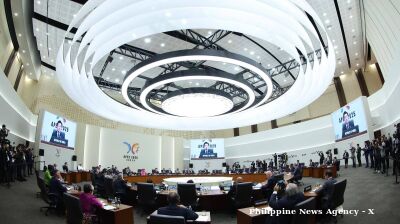The government has acknowledged Budapest's pre-emption rights for a 85-hectare brownfield area in the capital, effectively terminating a gigantic €12bn project promised by UAE-based Eagle Hills to build a new city district. Budapest Mayor Gergely Karacsony and opposition leaders hailed the decision as a major victory for the city.
Eagle Hills' development plan, dubbed Mini Dubai at the start and later renamed Grand Budapest, included the construction of skyscrapers as high as 500 metres, luxury apartments and even a mosque.
The Dubai-based property developer was informed about the decision a day earlier, head of the Prime Minister's Office Gergely Gulyas said at the weekly cabinet briefing on February 6.
Gulyas said Budapest, via its municipal company BKM located in the area, must pay the purchase price and clear the area, effectively taking over the obligations originally assumed by the Arab investor.
Last month, the state sold the development area to Eagle Hills for HUF51bn (€130mn) without calling a tender, with the purchase price due to be paid by 2039. The buyer obtained ownership rights over properties on the plot upon paying 25% of the purchase price, according to the contract.
The government sold the plot nine months after signing an intergovernmental agreement with the United Arab Emirates.
The state gave the investor free hand on what to build on the site, seen as the last golden reserve of undeveloped area in the capital just a few kilometres from the landmark Heroes' Square monument. It was classified as a project of "national economic interest," being granted fast clearance of administrative procedures and reduced bureaucratic hurdles.
The government in the contract agreed to amend Hungarian legislation at the will of the UAE investor, such as changing flight corridors over the city, as the high-rise buildings planned on the site would have been in the way.
As part of the agreement, the state committed to a €800mn infrastructure development around the site. The UAE investor was granted the right to forgo payment for the plot if this development did not materialise.
Gulyas did not offer any explanation for the sudden reversal of the government's position, as the Orban cabinet is not known for conceding on major issues unless it sees major political risks. The government honoured the pre-emptive rights of Budapest, he said, although government officials were denying that.
The cabinet, which has touted itself as the defender of sovereignty, has faced a strong backlash from civil groups, residents and even from its voters, for selling out Budapest. It appears the government recognised that the controversial project carries immense political risks a year before the election, analysts concluded. It can now point the finger at Budapest for not carrying out its obligations.
All parties in the Budapest assembly, except Fidesz, hailed the government's sudden turnaround as a victory. However, David Vitezy, supported by Fidesz in the Budapest mayoral election after the withdrawal of the Fidesz nominee, warned that the state could still thwart the project, as it owns the railway network in the development area. Thus the success of any development project put forward by Budapest will require cooperation between the parties.
The 2019 local government development plan, known as Park City, envisages the construction of 8,000 to 10,000 homes, along with commercial services and high-quality green spaces, on the site.
Karacsony reiterated that Budapest will assume all obligations originally undertaken by the Arab billionaire in the purchase and sale agreement and that development in Rakosrendezo will serve the city’s future in an open, transparent manner with the involvement of its residents.
Opposition leader Peter Magyar also claimed credit for forcing the government to concede. Tisza Party announced plans to hold demonstrations against the development, which, according to Magyar, was designed only to siphon public funds to Fidesz oligarchs.
He asserted that the government withdrew due to public backlash and stressed that Tisza Party will employ all legal and political means to prevent the misappropriation of state assets by Prime Minister Orban and his associates.
News

US–China soybean sales restart
According to Scott Bessent, US Treasury Secretary, the agreement marks a significant step towards restoring normalcy for American farmers.

Russia faces $50bn annual losses from oil sanctions as Lukoil exits international assets
Russia is expected to lose at least $50bn annually due to oil-related sanctions, as Moscow’s largest private oil producer Lukoil agrees to sell its international assets and Germany considers nationalising operations owned by state-run Rosneft.

Chicken and chips in Seoul - for Nvidia, Samsung and Hyundai
In a low-key fried chicken shop in southern Seoul, the leaders of Nvidia, Samsung Electronics and Hyundai Motor held an informal meeting on the evening of October 30.

Presidents Lee and Xi begin diplomatic chapter at APEC summit
President Lee, who is chairing the first session of the summit at the Hwabaek International Convention Centre, stood at the entrance to personally welcome participants. President Xi reached the venue at approximately 10:02.




